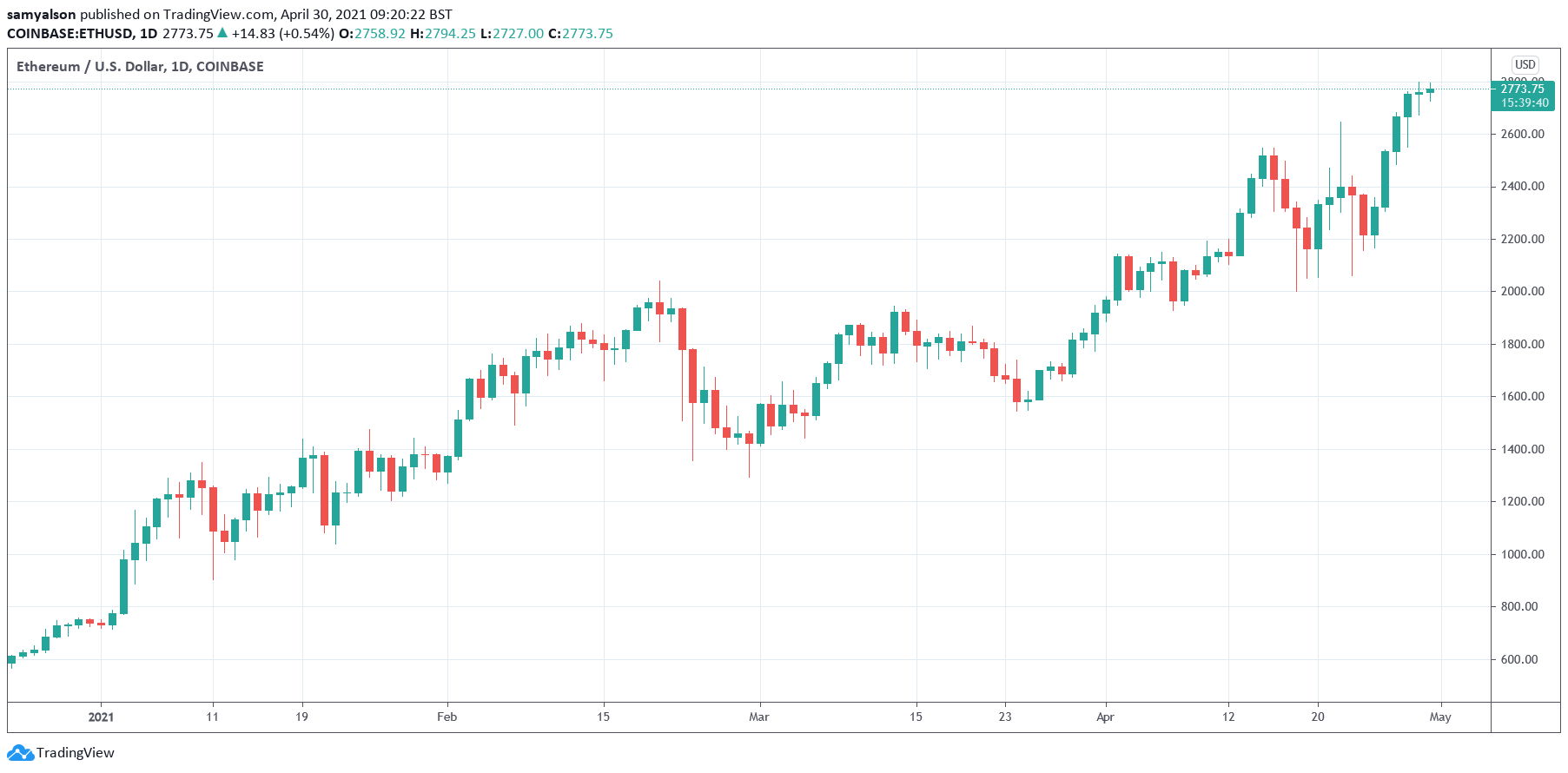In a bid to save the Ethereum mining community, a group known as the Ethereum Genesys Foundation (EGF) successfully hard forked the chain to continue Proof-of-Work (PoW) mining.
With the ETH 2.0 upgrade well underway, the switch to Proof-of-Stake (PoS) would render miners redundant. What’s more, miners claim they are slowly being phased out, even before ETH 2.0 is fully rolled out. Community splits are difficult at the best of times, more so how the original chain tends to fare better. With that in mind, is Ethereum Genesys doomed to fail?
Ethereum Genesys Looking to Continue PoW
The EGF successfully initiated the hard fork of the Ethereum mainnet in mid-April, which they called the “Maple Fork.” They intend to save the PoW mining community and produce a forked token called Ethereum Genesys (ETG).
On why users would prefer this to the original Ethereum, they say the Ethereum Foundation’s approach to PoS makes it less decentralized than PoW as most Beaconchain validators run on either AWS, Google Cloud, or Azure. They also mention the minimum staking requirement of 32 ETH ($88k) is prohibitively expensive for the average person.
“Our first priority is to save the miners across the world the have been securing the Ethereum block chain since the beginning. Therefore we will stay a pure PoW blockchain. We do not agree with Ethereums [sic] future path forward with a pure PoS model.”
Core devs are considering the implementation of Ethereum Improvement Proposal (EIP) 3238 in the London hard fork scheduled for July. This “Difficulty Bomb” increases the difficulty level of PoW puzzles. The result is longer block times and therefore less reward for miners.
The difficulty will increase over time to the point of “Ice Age,” when mining becomes so difficult it’s not economically attractive to do so.
Founding member of EGF, Earl Mai, said the “Difficulty Bomb” is the first step in ending PoW mining on Ethereum. But thanks to the Maple Fork, this code has been disabled.
“The Ethereum GeneSys Foundation has disabled this code forever, so that mining can continue indefinitely. All parameters needed to enable the fork in the ‘geth’ and ‘openethereum’ code bases are submitted on GitHub for easy setup of nodes, including fork configuration changes.”
The community response to ETG has been underwhelming, with little coverage of the split.
Community Sentiment
This month, community sentiment over the miners’ “show of force” against EIP 1559 was met with animosity.
EIP 1559 is a fee market overhaul that will bring predictable fees and a burn mechanism. This may see a reduction in revenue for miners. To protest this, some Ethereum miners threatened to concentrate hashing power to a single pool, leaving the chain potentially open to a 51% attack. They planned for this to happen on April 1, but this day came and went without any action.
At the time, many said that miners were isolating themselves from the rest of the community by making the threat. This only highlighted a conflict between what different segments of the Ethereum community want.
With that, a successful project needs all stakeholders on board. But retaining PoW is a big ask for users fed up with high gas prices.

Source: ETHUSD on TradingView.com
from NewsBTC https://ift.tt/3e6CLSo
via IFTTT
Comments
Post a Comment
Any questions, Please.